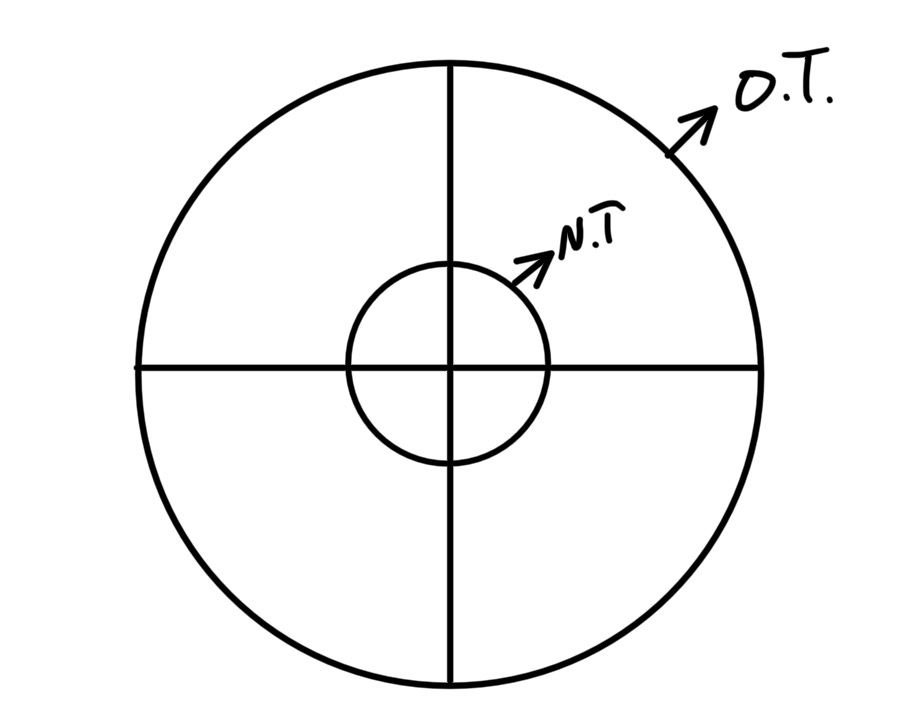In 1 Corinthians 9 Paul continues his extended argument about eating meat sacrificed to idols. Paul holds up his own practices as an apostle as an example for the Corinthians to follow. He has certain rights that are his as an apostle. According to the Law and Jesus’ teachings, ministers should be financially supported in the work of ministry. But Paul renounces his right to financial support from the Corinthians.
In this way he not only preaches the gospel, but embodies it. Gordon Fee explains Paul’s argument in 1 Corinthians 9 like this:
In offering the “free” gospel “free of charge,” his own ministry becomes a living paradigm of the gospel itself.
Fee is right, I think, but doesn’t put it strongly enough. Paul’s life is not just a paradigm—or an example—of the gospel, the very life of Christ is happening in Paul’s life. Paul’s life is mysteriously participating in the life of Jesus.
The life of Jesus takes the shape of humility and self-emptying. In Philippians 2:5—11 Paul quotes a hymn that early believers were already singing to the resurrected Christ:
Although being in the form of God, He did not consider his equality with God as something to be exploited for his own advantage, But emptied himself, By taking the form of a slave, By being born in the likeness of human beings. And being found in human form, He humbled himself By becoming obedient to death —even death on a cross.
New Testament scholar Michael Gorman finds a basic pattern in this hymn that Paul utilizes all throughout his letters:
“Although [x], not [y] but [z].”
“Although [status/rights], not [selfishness] but [humility/self-emptying].”
Paul uses the same pattern in 2 Corinthians 8:9:
For you know the generous act of our Lord Jesus Christ, That though he was rich, Yet for your sakes he became poor, So that by his poverty You might become rich.
You can see the pattern clearly here: “Although [Christ was rich], he did not [hold on to his wealth] but [he became poor for us].”
In 1 Corinthians 9 we see that Paul’s life is taking on this same pattern of the Christ hymn from Philippians 2: “Although [he is an apostle], he does not [exercise his rights as an apostle] but rather [becomes a slave to all].”
And Paul is inviting the Corinthians who feel they are free to eat meat (their right!) to have this same song of Christ sung in and through them.
But this is key: Michael Gorman points out, the word “although” is not in the Greek text of Philippians. He argues it would be better translated “because.” It is precisely because Jesus is God that he empties himself for the sake of others. Jesus isn’t acting differently than God in his humility and self-emptying; he is acting in accordance with who God is! Because Jesus is God he empties himself.
This hymn is the very shape of God’s being. And the work of the Spirit is to hymn us into Christ—to make us precisely who we were created to be. It is precisely because we are hymned into Christ by the Spirit that our lives take on the same character of humility and self-emptying. This is who God is and we have been brought into him and made to sing his song along with him.
Diagram: This diagram is from Fr. John Behr on the relationship between the Old and New Testament. The cross has always been the center—the true meaning—of the Old Testament. The New Testament does not “add” anything “new” to the Law and the Prophets. Rather it provides a clarifying “image.” It focuses our attention on the cross.
Maximus the Confessor (6th century) explains the relationship between the Old and New Testament by using the language of Hebrews 10:1: “For ‘shadow’ refers to the things of the Old Testament, ‘image’ to things of the New Testament, and ‘truth/reality’ to the future state.”
Gregory the Great (4th century) strikingly puts the matter like this in a homily on Ezekiel: “See how when we want to clarify the meaning of a passage in Ezekiel, we settle the matter at issue from one of the Gospels.”















The Spirit Hymns Us In